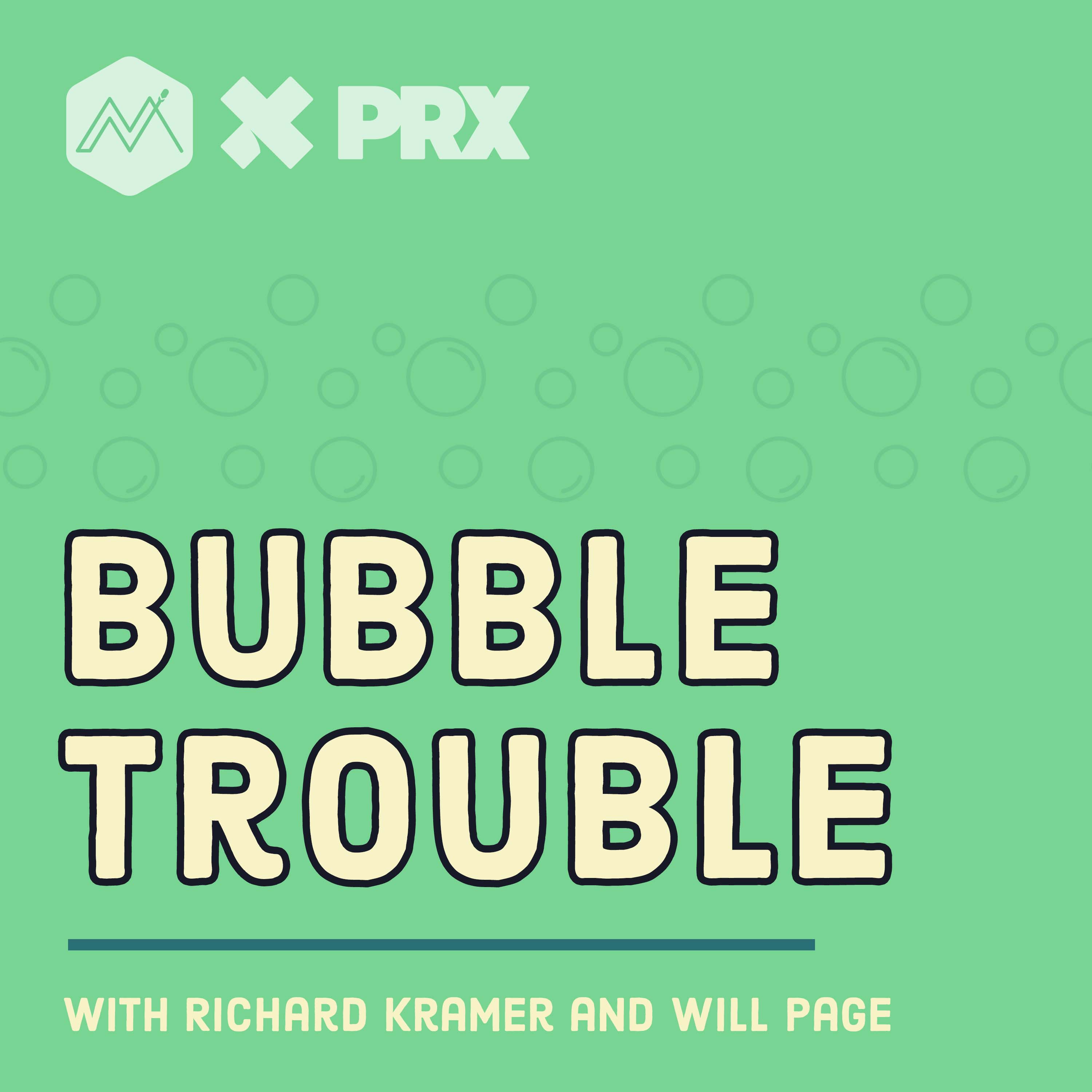Season 1
Shark Fins
This week we're going to be jumping the shark. That is we're going to be looking at why tech companies and their success, their growth, their user numbers often resemble a shark fin: how they scale up really fast, then taper off then fall really, really fast in a straight line all the way down. (Re…
Buy. Borrow. Die.
Today, we're treading deep in some chicken sh*t with Propublica investigative journalist Jesse Eisenger.
Muscles in Brussels
Recently, in the most European city of Brussels, there was mingling with the finest folks in competition law and economics. They were all trying to figure out if, and how, tech should be regulated. Will and Richard discuss.
Analyst Notes, The Black Art of Price Targeting, and Twitter with gue…
Today, we target those analysts notes that tell us what they think the price should be and how much faith we should put in that moving target. We have Aman Verjee who served as a VP of Paypal from 2002 to 2010 and was first to call out the price target fiasco behind Twitter's defense of Elon's host…
Passing the Tech Ethics "Hot Potato" with Stephanie Hare
Today we wrestle with ethics and technology. Stephanie Hare's wonderful new book. Technology Is Not Neutral, gives us a much needed framework for thinking about how the technologies we interact with every day affect our moral lives more.
NFTs - They're Not For Me
This week, we'll get Will Page’s impressions of the bubbles gathering around that island and what tsunami warning horns ought to be blaring when we talk about NFTs.
When Two Plus Two Equals Two
This week we explore the current craze in the mergers and acquisitions going on just now. And asking, do they actually create additional value? Or is it the case that two plus two does equal two? (Repeat)
The World Is Addicted to Easy Money with Chris Leonard
We've made quantitative easing easy-ish to understand, now we need to infiltrate the institutions that do that easing: the central banks with the award-winning New York Times journalist and author of the aptly titled best-selling book, Lords of Easy Money, Christopher Leonard.
Finding Out What's Really Going On with guest Martin Peers
A lot of financial journalism about companies and markets lives and dies based on access. But what are other ways of finding out what's really going on? Joining us this week is Martin Peers, Senior Writer for The Information.
Where Does Money Come From? with Michael McMahon
Today we bring on the sexy topics of fractional reserve lending and quantitative easing with Michael McMahon from the Bank of England and Oxford University.
Poor Standards
This week we look into rating agencies and ask: Why were they invented? What is their purpose? Who pays their wages?
Culture Eats Strategy For Breakfast
With all the emphasis on hard metrics and financials, it's often easy to overlook the culture of companies and the role it plays in their success (or failure).
SPACs Are This Year's Vanilla: Our Conversastion with the FT's Brooke…
SPACs Are This Year's Vanilla: Our Conversastion with the FT's Brooke Masters Part Two
The World is Full of Pyramids: Our Conversation with the FT's Brooke …
Today we have our first of two episodes featuring Brooke Masters, the Chief Business Commentator and Associate Editor of the Financial Times.
The Theranos Bubble
Today we look back Elizabeth Holmes and Theranos. Was this a unique case of "faking it until you make it" or this what everyone in tech does?
Smoking Out Signals in 2022
Today we're going to take a break from blowing bubbles and instead go smoking…and look at the smoke signals we should, and importantly, shouldn't be looking out for in 2022.
Is This The Next Housing Bubble? Daryl Fairweather on Hyper-competiti…
We're back to blowing bubbles in the housing market with Daryl Fairweather, an acclaimed economist from Redfin, where we ask if the double-digit grow in housing prices indicates another bubble.
FOFO: Fear of Finding Out--Hyper-competition in China with George Mag…
We add a new acronym to our alphabet soup: FOFO--Fear of Finding Out, as we discuss hyper-competition in China with economist George Magnus.
Will's Favorite Episode of 2021: Andrew Savikas on Hyper-competition …
For the last two episodes of the year, we’re looking back at favorite episodes for both Richard and Will. This week, Will’s favorite: their interview with Andrew Savikas on hyper competition in the book industry.
Richard's Favorite Episode of 2021: The Charade of the Earnings Call
For the last two episodes of the year, we’re looking back at favorite episodes for both Richard and Will. This week, Richard’s favorite: The Charade of the Earnings Call.
Peak FOMO
We're back to blowing bubbles, the original source of this inspirational podcast, and we deep dive into the force that's driving markets to record highs. Peak FOMO, fear of missing out.
Themes and Dreams
This time we look at the themes and dreams that markets put out there to attract the investor's dollar. If it's too good to be true, are we in dreamland? (Repeat)
Seth Wunder on Hyper competition in the Hedge Fund World
On this episode, we discuss hyper-competition in the hedge fund world with Seth Wunder.
Joe Kessler on Hyper-competition in Talent
In this episode, we're in conversation with our fifth special guest, Joe Kessler of UTA IQ, discussing hyper-competition for that scarcest of commodities--talent.


